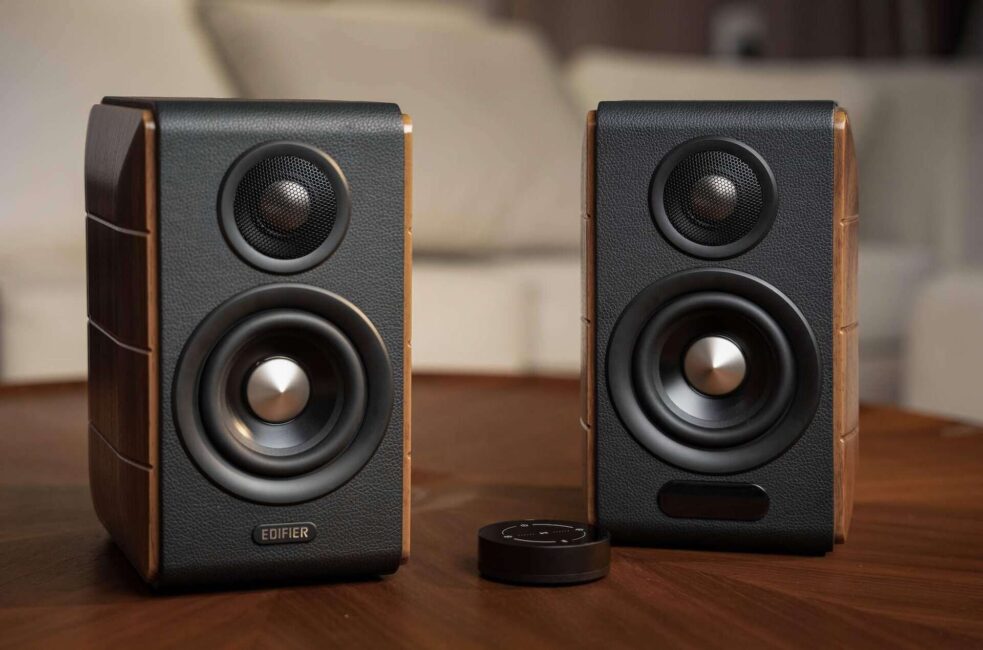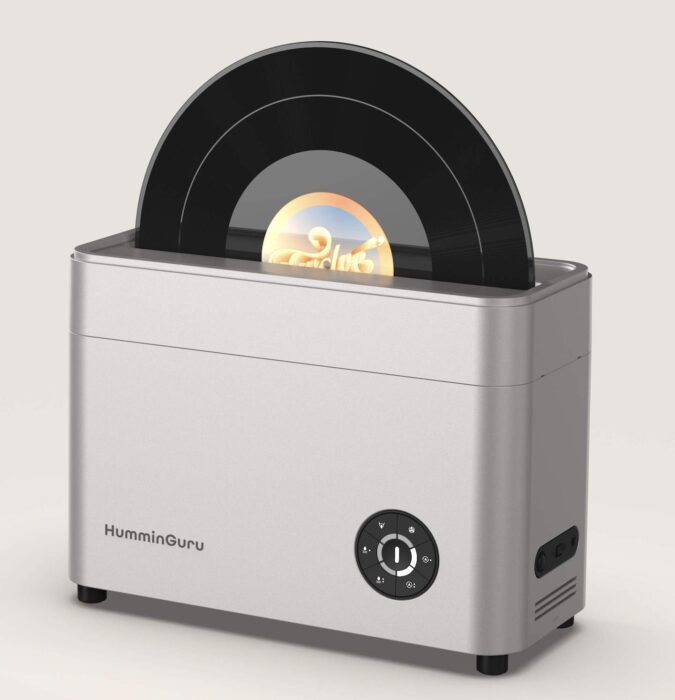The Article
EOS 2.5 BLOCK & CABLE FROM ATLAS
26th June 2023

Looking at the mains end of affairs, Paul Rigby checks out both the 2.5em power cable and Eos 2.5em Modular power block from Scottish outfit, Atlas
I’m looking at the power end of the cabling HiFi conundrum in this twin review from Atlas. Both of these products try to either shield against harmful and noise-making devices (and and outside your HiFi chain) or they drain parasitic noise away from your HiFi system.
How and in what way they do that, how efficient they are and how they handle the audio signal in the process will affect the sound itself which is why I and my journalistic colleagues say that this cable ‘sounds like this’ or a power block ‘sounds like that’.
Every item in and around a HiFi chain will affect sound, whether you’re talking turntables or amplifiers, the shelves they sit upon or the room that holds them all: mains cables and power blocks are no exception to the rule, they are part of the equation.
Let’s begin then with the 2.5em power cable first which includes 2.5mm² (you can see what they did there, eh?) OFC (Oxygen Free Copper) conductors. This is a PVC-covered screen cable helped in its job by carbon. You will also find a dual drain feature to remove unwanted high-frequency noise. That is, inside the cable is an additional pair of conductors used to improve the efficiency of the screen by rapidly draining RFI to earth.
The Eos 2.5em Modular power block is a 6-way unit with an aluminium chassis and 2.5mm² copper conductors. Designed to screen out high-frequency noise, it also arrives with a ground point in the form of a screw-thread grub screw for spade-mounted ground cables. I would have liked to have seen a dual access spade/banana connection here. Also, the chassis can mount feet to enhance isolation: rubber feet or spikes.
SOUND QUALITY
I began with a bit of a challenge. Any live album, and they all feature chaotic and uncontrolled sonics, is troubling for HiFi. So I grabbed an original pressing of Oil On Canvas (Virgin, 1983) from Japan and played Sons of Pioneers. This one features multiple tones across the drum kit which sits deep in the reverb of the auditorium, the iconic bass guitar from Mick Karn, synths and vocals.
Although, saying all that, if there’s any Japan fans out there…is this album really live? Has it been processed in the studio like one or two Thin Lizzy albums I could name? The audience and some of the instruments seem tweaked or stuck on as an afterthought. Something sounds ‘off’.
EOS 2.5EM MODULAR POWER BLOCK
The Atlas itself is far from ‘off’, however. In fact, this is arguably the most neutral of power blocks I’ve heard in some time.

If you listen to the lower cost Titan Styx, that unit adds some emphasis to the bass frequencies giving an attractive punch to the lower end. The Eos 2.5em Modular doesn’t do that. It reins in any extraneous frequencies and corrals them towards a strict balancing point. Bass still retains power and weight but it refuses to add punch and dynamism. Bass is tamed, controlled and dragged towards the centre.
Some users might not appreciate that effect but the power block is playing strictly by the neutral book here.
So what you get from this block is a highly disciplined sonic presentation. There are no wayward frequencies causing surprises here. No bass bloating, no edgy mids and no tizzy treble.

This also means that the rest of your HiFi is not coloured by the power block and how the unit handles mains signals. That is, the Eos 2.5em Modular is an oasis of calm at the centre of your system. Testing this recording, it was remarkable how tamed this album now appeared.
Listening to Plaid’s Feorm Falorx (Warp, 2022) via CD which mixes lead guitar, drums and synths, a well-recorded studio album, the Eos 2.5em maintained that neutrality. There may be a slight lack of air around the upper mids perhaps. Just a tad? A smidgeon but nothing egregious and that may very well be a part of the neutrality recipe. Keeping real, you might say, without adding any false enhancements.
2.5em MAINS CABLE
I then switched to the 2.5em mains cable and kept Plaid rolling. For the cable? Well, ditto really. See above.
All of the detail you want and expect remains on this track. The weight and mass from the bass is present, the complexity and midrange insight from the mids is there and the delicate information around the treble regions can be ticked off too.
Listening to vinyl again and Japan and you can hear how this mains cable spouts the same philosophy as the mains block: keep it neutral, then get out of the way and let the rest of the HiFi do the talking. Yes, there might be a small reduction in air and space around the upper frequencies and treble as a consequence of this enhanced discipline but the overall control and calm in terms of balance is what you gain. So the choice is yours.
CONCLUSION
What we have here are two very impressive mains products from Atlas that both offer dedicated neutrality which, I have to say, is a novelty for much of the HiFi products I tend to hear, nowadays. Modern HiFi too often wants to impress you which is odd because I thought that was music’s job. Problem is, some HiFi can lose control while doing so. Atlas is not afraid to beat a central pathway to your ears, keeping the sonics strictly balanced and under control. You’ve got to give the company kudos for that.
ATLAS EOS 205em POWER BLOCK & EOS 2.5em MAINS CABLE
Prices:
Eos 2.5em Mains Cable: £345/m
Eos 2.5em Modular Distribution Block : £395
GOOD: balanced overall output, neutral bass, detail, disciplined mids, cable design
BAD: presentation may lack excitement for some, power block grounding
RATING: 8 (each)
Pro-Ject Phono Box MM Phono Amplifier
Leema Elements Phono Amplifier
Tellurium Q cabling
Blue Horizon Professional Rack System
Harmonic Resolution Systems Noise Reduction Components
Air Audio AC-2K Balanced Transformer
Russ Andrews Superrouter Signature
All vinyl was cleaned using a Degritter









